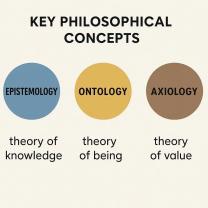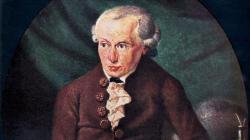Who were the early philosophers?
Early philosophers, often referred to as "pre-Socratic philosophers," were thinkers from ancient Greece who lived before the time of Socrates (469-399 BCE). They laid the foundation for Western philosophy by addressing fundamental questions about the nature of the universe, the origins of the cosmos, and the underlying principles governing the natural world. Here are some of the notable early philosophers:
Thales of Miletus (c. 624-546 BCE): Thales is often considered the first philosopher in the Western tradition. He proposed that water was the fundamental substance (archê) underlying everything in the natural world and was the source of all things.
Anaximander (c. 610-546 BCE): Anaximander, a student of Thales, posited the concept of the "infinite" (apeiron) as the primary substance from which everything originated. He also made contributions to astronomy and geography.
Anaximenes (c. 585-528 BCE): Anaximenes believed that air or breath (pneuma) was the fundamental substance. He argued that changes in density and rarity of air explained the transformations of matter.
Pythagoras (c. 570-495 BCE): Pythagoras is known for his work in mathematics and geometry, particularly the Pythagorean theorem. He also had philosophical ideas, such as the belief in the fundamental role of numbers in understanding the cosmos.
Heraclitus (c. 535-475 BCE): Heraclitus is famous for his doctrine of constant change and the idea that "everything flows" (panta rhei). He believed that fire was the primary substance and that everything was in a state of flux.
Parmenides (c. 515-450 BCE): Parmenides argued for the existence of a single, unchanging reality. He believed that change and multiplicity were mere illusions, and that the true nature of reality was unchanging and uniform.
Empedocles (c. 490-430 BCE): Empedocles proposed that there were four fundamental elements (earth, water, air, and fire) and two forces (love and strife) that governed the interactions between these elements.
Anaxagoras (c. 500-428 BCE): Anaxagoras introduced the concept of "nous" (mind or intellect) as the organizing principle of the cosmos. He argued that everything contained portions of this intellect.
These early philosophers made significant contributions to metaphysics, cosmology, ethics, and natural philosophy. Their ideas laid the groundwork for the subsequent development of Greek philosophy by thinkers like Socrates, Plato, and Aristotle, as well as the broader Western philosophical tradition.
Pioneers of Philosophy: Early Thinkers Who Shaped the Discipline
Philosophy is the study of fundamental questions about existence, knowledge, values, reason, mind, and language. It is one of the oldest academic disciplines, dating back to the ancient Greeks.
Some of the earliest and most influential philosophers include:
- Socrates (470-399 BC): Socrates is considered the father of Western philosophy. He was a Greek philosopher who lived in Athens in the 5th century BC. Socrates is known for his method of inquiry, which involved asking a series of questions to help people arrive at the truth.
- Plato (428-348 BC): Plato was a student of Socrates and one of the most important philosophers in history. He is known for his theory of Forms, which states that there is a perfect world of Forms that exists beyond the physical world. Plato also wrote about a variety of other topics, including ethics, politics, and epistemology.
- Aristotle (384-322 BC): Aristotle was a student of Plato and another one of the most important philosophers in history. He is known for his contributions to logic, metaphysics, physics, ethics, and politics. Aristotle's work had a profound influence on Western thought for centuries.
Other early philosophers who shaped the discipline include:
- Confucius (551-479 BC): Confucius was a Chinese philosopher who lived in the 6th century BC. He is known for his teachings on morality, ethics, and government. Confucianism is one of the most influential religions in China and East Asia.
- Siddhartha Gautama (5th century BC): Siddhartha Gautama, also known as the Buddha, was an Indian philosopher and religious leader. He is known for his teachings on the Middle Way, which is a path to enlightenment that avoids the extremes of self-indulgence and self-denial. Buddhism is one of the major world religions.
- Laozi (6th century BC): Laozi is the traditional founder of Taoism, a Chinese philosophy that emphasizes living in harmony with the Tao, or the Way. Taoism is one of the major religions in China and East Asia.
These are just a few of the many early philosophers who shaped the discipline. Their work has had a profound influence on Western thought and continues to be studied and debated today.
The Founding Philosophers: Exploring the Origins of Philosophy
The origins of philosophy can be traced back to the ancient Greeks. The early Greeks were interested in understanding the world around them and their place in it. They asked questions about such things as the nature of reality, the meaning of life, and the foundations of knowledge.
The early Greek philosophers were also interested in developing ethical and political systems that would lead to a good life for individuals and societies. Their work had a profound influence on Western civilization and continues to be studied and debated today.
Ancient Philosophers: Early Minds in the World of Ideas
The ancient philosophers were the first to explore many of the fundamental questions that philosophers still grapple with today. They developed new ways of thinking about the world and challenged traditional beliefs.
The ancient philosophers were also interested in developing practical solutions to the problems of everyday life. They wrote about ethics, politics, and education. Their work has had a lasting impact on human thought and culture.
The ancient philosophers were some of the most brilliant and creative minds in history. Their work has helped us to better understand ourselves and the world around us. We are indebted to them for their contributions to our knowledge and culture.












